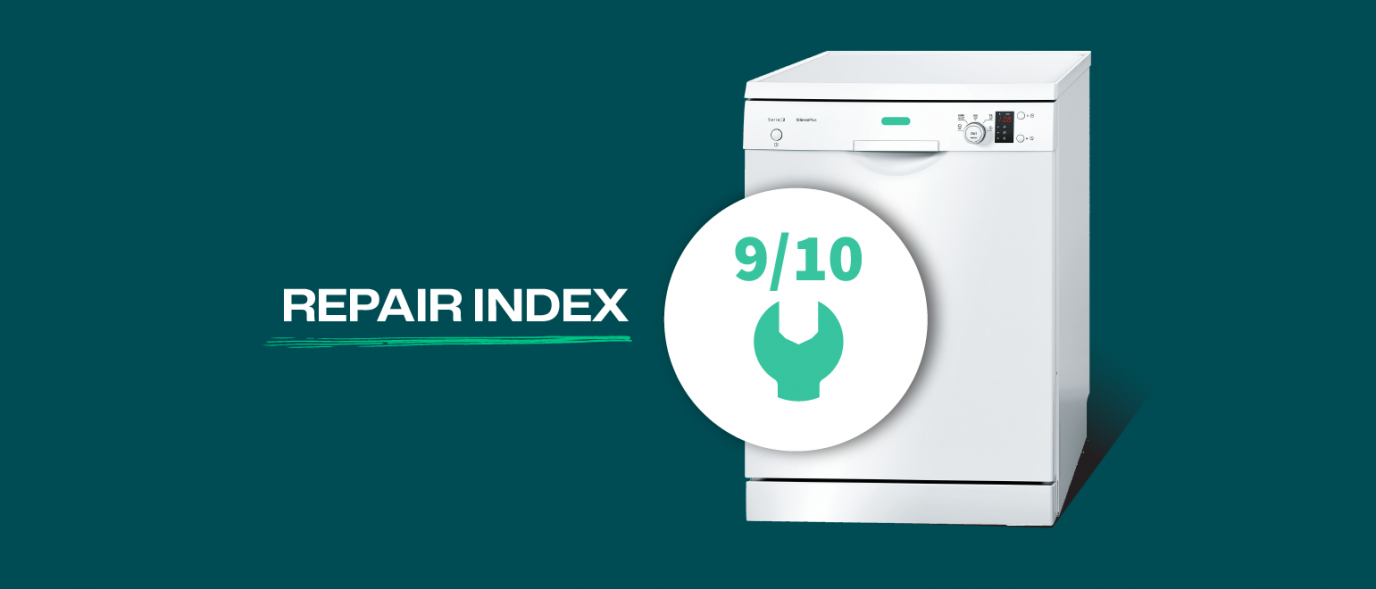PR | Belgium becomes the second European country to introduce a reparability index
On Friday 2nd June, the Council of Ministers adopted the draft bill tabled by the Federal Minister for the Environment, Zakia Khattabi, introducing a reparability index. This measure, which stems from the federal action plan for circular economy, is not only a major step forward in the fight against the premature end-of-life of certain objects, it also helps to preserve the natural resources needed to produce them.

Zakia Khattabi: "Every year, almost 245,000 tonnes of electrical and electronic appliances are put on the market in Belgium: from washing machines and televisions to smaller electronic devices and laptops. All these appliances have a significant environmental, social and economic impact. They require large quantities of raw materials, the extraction of which often respects neither environmental standards nor human rights. They produce mountains of waste, particularly in countries where there is no recycling or where processing takes place in conditions that are unfavourable for people and the environment. They generate significant CO2 emissions during production, with the extraction and processing of raw materials responsible for half the world's carbon emissions. Finally, the supply of these raw materials is regularly disrupted for geopolitical or economic reasons. As a reminder, the excessive use of raw materials was already highlighted in the Club of Rome's "Limits to Growth" report in 1972. So it's high time we got to grips with this issue".
"Faced with these multiple challenges, a circular economy is an obvious choice! To reduce the impact of electrical and electronic equipment on the environment and increase our strategic autonomy, it is essential to take steps to extend their lifespan. The introduction of a reparability index will also lead to more local jobs and lower costs for consumers, who will be able to have their appliances repaired rather than buying new ones. It's a resilient economic system with fourfold benefits! Greater transparency on reparability and lifespan also enables companies to promote products that are easy to repair and last a long time", she continued.
The bill introduces a reparability index based on a number of criteria: the availability of technical information and maintenance manuals, the ease with which the product can be dismantled, the availability of spare parts and their delivery times, the price of spare parts and other criteria specifically linked to the product.
With this law, Belgium becomes, after France, the second European country to have a reparability index. The objective is for the reparability index and the durability index to be exactly the same as the indices used in France, which has already implemented a reparability index as part of the anti-waste and circular economy law since January 2021. As a result, the legal standards are the same as those stipulated by French law.
The reparability index is introduced for household appliances: washing machines, dishwashers, hoovers, high-pressure cleaners, lawnmowers, televisions and laptops. These are the same product groups for which a reparability index has been introduced in France. A reparability index for bicycles is also being studied.
In France, it is planned that the reparability index for a certain number of groups of products will be replaced by a life expectancy index in the coming years. To ensure that the Belgian indices follow French developments as closely as possible, the FPS Health will check at least every three months whether a sustainability index replaces the reparability index for a given product category in France. If this is the case, the obligation to introduce a reparability index in Belgium for this specific product group will be lifted as soon as possible. A Royal Decree will then be drafted to introduce a sustainability index for the concerned product category.
The draft bill is accompanied by two Royal Decrees: the first designating the product categories for which a reparability index will be introduced, and the second setting out the procedures for communicating about this index. The index is due to come into force in 2026 (18 months after publication for large companies, after 24 months for small companies). Eventually, by Royal Decree, the King will be able to supplement the reparability index with a sustainability index, adding robustness and reliability criteria.
However, retailers already have the option of establishing a reparability index. Electrodepot, for example, will be displaying a repair index in its shops and on its website starting next week. Fnac Vanden Borre is also well advanced in collecting information on the reparability of their appliances.
This law is also the starting point for a new industry consultation on how to extend the life of appliances. A platform will be set up to enable manufacturers, retailers and repairers to assess the impact of the score on the lifespan of appliances entering the market. It will serve as a basis for formulating proposals to improve the score so that it better reflects the repairability of a product. The platform will also be used to make recommendations to the government to support repair activities and extend the life of appliances.


